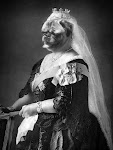I was a late arrival with the works of Hector Berlioz in comparison with other favorite composers. Although Symphonie Fantastique had its moments, his other works just failed to ignite my passion. But it was a chance to hear Harold in Italy a few years ago that revealed (aided by my advancing maturity) Berioz's brilliance. Thus I welcomed this weekend's Kansas City Symphony concert featuring Principal Violist Christine Grossman as solo in "Harold in Italy, Symphony in Four Parts with Viola Obbligato", Op. 16, The concert opened with the sunny "Italian Serenade" by Hugo Wolf and the Barber Piano Concerto with James Tocco as solo.
With an ensemble likely smaller than those on many recordings, Stern was able to bring out many of the chamber like sonorities in this complex and often busy work. Especially delicate and revealing was the quiet opening with soft (but slightly hesitant) basses building with the winds and strings to a climax, revealing the viola with the Harold theme accompanied by shimmering harp and sweet arpeggios in the woodwinds. The detail and intimacy set the tone for the rest of the work.
Grossman's tone, phrasing and ability to project over the frequently busy orchestral fabric was important in communicating the program of the work. The Harold theme was clearly heard as it wove its way through the various scenes, something not always encountered even in recordings.
The second movement Pilgrim March was equally fine, the only blemish being the sul ponitcello arpeggios that were blurred in the orchestral fabric, one of my favorite passages in the work.However, the quiet reverent ending with harp, viola and winds was superb. The Abruzzi Serenade was sweetly rustic with an always wonderful contribution by the orchestra's English horn Kenneth Lawrence. The finale, "Orgy of the Brigands and Memories of Scenes Past", brought out all of Berlioz's and Stern's stops with a vigorous but never vulgar performance.
Grossman received thunderous and well deserved accolades from her hometown crowd as did the whole ensemble for bringing this fascinating and not all that often heard work to life.
The Barber Concerto is one of the composer's masterpieces but not as often heard as the Violin Concerto. Written in 1960-1962 for John Browning (the last movement was not finished until a few days before the premiere and was pronounced unplayable until revised) the Pulitzer Prize winning work is also one of his more complex and frenetic scores. Tocco certainly had the technique, vision and maturity to keep this work from becoming solely a clangorous nightmare. Same could not always be said for the strings, who frequently faltered in intonation and struggled to keep up with the busy scoring of the outer movements. All was in fine form, however, in the central Canzone, the calm eye of this hurricane of a concerto. Tocco kept the reflective melody going without it becoming sweet and slick, delicately accompanied by the orchestra. The final movement was all of show and speed but done with clarity of texture and thrill-every-moment verve, despite the aforementioned slips.
Opening the concert was a sweetly expressive performance of a little heard bon bon, the Italian Serenade of Wolf.
The final Classical Series event of the year, the KCS turns to the annual Messiah performance and Christmas concert series. January brings two interesting concerts with Strauss' "Also Sprach Zarathustra", the Prokofiev 3rd Piano Concerto, Beethoven's "Grosse Fugue" and the wonderful Martinu 4th Symphony.
As this is likely the last entry of the year, we wish you a Happy Thanksgiving and Merry Christmas from all of us at the Palace!
Saturday, November 20, 2010
Sunday, November 14, 2010
Kansas City Lyric Opera: Norma
It is kind of a moot point reviewing the Kansas City Lyric Opera's production of Vincenzo Bellini's "Norma" while its final performance is underway. I saw it last Wednesday and just now, on a cool Sunday evening, am getting around to putting my impressions in print. It is not like a ton of people would go based on my musings anyway or the cast was waiting up late at a cocktail party waiting for my make or break review to come in, as in the old movies.
What was most surprising is that the Lyric, in its 50+ years of performances, had never produced Norma. I heard various reasons; lack of strong voices and lack of a decent English translation (for ages, the Lyric only performed in English) were the ones I heard most. So a debut of sorts for an 1831 opera.
The wait worth it? Soprano Brenda Harris as Norma, the Druid High Priestess and soprano Laura Vlasak Nolen as Adalgisa (which I always want to call Analgesia), while no Sutherland and Horne (or the great Shirley Verrett for that matter)certainly had the power and range to tackle these most demanding roles. Together their voices blended well, Harris being a bit brighter than Nolen, bringing a power and poignancy to the wonderful duet "Mira, O Norma". Harris was fine, but restrained, in the beloved (and deservedly so) aria "Casta Diva" which sealed this opera's popularity and gave us a word that is now almost over used.
Short and powerfully built with a strong voice, tenor Rafael Davila, in the thankless role of the total ass Pollione, the Roman Proconsul of Gaul, was excellent. He was soft and seductive when paired with his love Norma, but bellicose and arrogant in the crowd scenes. The supporting cast was uniformly excellent.
I suppose to pay for the strong voices, the production had to cut costs in the scenery and supporting chorus. Diaphanous scrims and curtains sufficed as the forest primeval of Gaul, supporting an x-shaped set of tiered platforms and there was little variation between scenes. The chorus of Druids was skimpy and often drowned out by the orchestra. The great gong of the god Irminsul descended on the stage when required, again looking a bit skimpy and a tad tacky.
But the singing of Harris and Nolen, plus the brutish Davila, made this a worthy production and certainly whetted the audience's appetite for more bel canto operas. La Sonnambula maybe?
What was most surprising is that the Lyric, in its 50+ years of performances, had never produced Norma. I heard various reasons; lack of strong voices and lack of a decent English translation (for ages, the Lyric only performed in English) were the ones I heard most. So a debut of sorts for an 1831 opera.
The wait worth it? Soprano Brenda Harris as Norma, the Druid High Priestess and soprano Laura Vlasak Nolen as Adalgisa (which I always want to call Analgesia), while no Sutherland and Horne (or the great Shirley Verrett for that matter)certainly had the power and range to tackle these most demanding roles. Together their voices blended well, Harris being a bit brighter than Nolen, bringing a power and poignancy to the wonderful duet "Mira, O Norma". Harris was fine, but restrained, in the beloved (and deservedly so) aria "Casta Diva" which sealed this opera's popularity and gave us a word that is now almost over used.
Short and powerfully built with a strong voice, tenor Rafael Davila, in the thankless role of the total ass Pollione, the Roman Proconsul of Gaul, was excellent. He was soft and seductive when paired with his love Norma, but bellicose and arrogant in the crowd scenes. The supporting cast was uniformly excellent.
I suppose to pay for the strong voices, the production had to cut costs in the scenery and supporting chorus. Diaphanous scrims and curtains sufficed as the forest primeval of Gaul, supporting an x-shaped set of tiered platforms and there was little variation between scenes. The chorus of Druids was skimpy and often drowned out by the orchestra. The great gong of the god Irminsul descended on the stage when required, again looking a bit skimpy and a tad tacky.
But the singing of Harris and Nolen, plus the brutish Davila, made this a worthy production and certainly whetted the audience's appetite for more bel canto operas. La Sonnambula maybe?
Labels:
Classical Music,
Concert Reviews
Subscribe to:
Posts (Atom)


